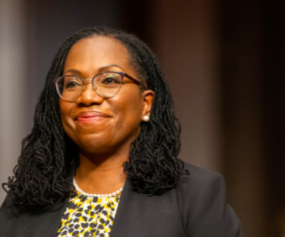By Prashant Gopal
In the pandemic-fueled housing frenzy, first-time buyers can’t compete.
Take Sarah and Koty Chapman, suburban Nashville restaurant workers in their 20s who started this year full of hope, with a baby on the way and plans for a house of their own.

They lost a dozen bidding wars for homes under $300,000 — up against mortgage borrowers with big down payments, telecommuters with out-of-state salaries and Wall Street investors skipping the line by paying cash. The Chapmans’ daughter was born in April and they’re stuck right where they started, in a rental. Determination has given way to resignation.
“Am I even going to be able to live in my own community?” said Sarah Chapman. “I don’t think it’s fair.”
Record price gains and fevered competition are crushing prospects for U.S. homeownership, a key driver of middle-class wealth. First-time buyers accounted for 29 percent of existing-home sales in August, the lowest share since January 2019 and below the five-year average of 32 percent, according to the National Association of Realtors. The share of government-backed mortgages often used for purchases by young people has also plunged since the start of the pandemic.
It’s a stark example of America’s uneven economic recovery. Soaring real estate values have gifted homeowners with record equity, with an average increase of more than $50,000 per mortgage in the past year, according to CoreLogic. But record-low borrowing costs, which should have made housing more affordable for young renters and minority groups historically left out of ownership, instead drove prices higher and pushed them even further behind.
“It’s extraordinarily hard to become a homeowner for a range of reasons, most significantly that prices have gone skyward,” said Mark Zandi, chief economist for Moody’s Analytics. “The next shoe to fall is higher mortgage rates. As soon as that happens — and it will — homes are going to be completely out of financial reach.”
In the latest sign of the market’s heat, a report Tuesday showed that prices for U.S. single-family homes surged 19.7 percent in July from a year earlier, the biggest jump in more than 30 years. Financing is one of the key issues putting first-time buyers at a disadvantage. Sellers have their pick of offers and are choosing cash purchasers or mortgage borrowers with conventional financing who can waive inspections and make up the gap if the lender’s appraisal falls short.Meanwhile, the share of purchase mortgages backed by the Federal Housing Administration — a key lending source for young people, low-income Americans and minorities — has dropped to the lowest level since at least 2012, according to data from the American Enterprise Institute. It fell to 18 percent in June from 23 percent in March 2020, when lockdowns began.
Lenders haven’t significantly toughened standards during the pandemic. Buyers with low credit scores and little savings can purchase a home with an FHA or government-backed veteran loan. But even now that housing demand has moved from unbelievably hot to merely hot, sellers are still far more likely to choose someone else.
“The most important factor isn’t whether or not you can get a mortgage, it’s whether or not you can win a bidding war,” said Danielle Hale, chief economist for listing site Realtor.com.
Before the Chapmans could even get in the ring, the pandemic almost knocked them out of the suburban Nashville housing market. In late March 2020, she lost her job as a server and he, as a chef. But they were back at work two months later and spent the rest of the year building up their credit scores by keeping up with bills and paying off debt.
Armed with an FHA mortgage, the couple made their first offer in January and lost. They got to work telling their story of hope in heartfelt letters to sellers, and still, only rejection. One house they would have financed with a $1,500-a-month mortgage was purchased instead by a landlord now renting it out for $1,900, Sarah Chapman said.
They decided to take a break after their daughter, Amelia, was born. Sarah Chapman is in college finishing her bachelor’s degree in social work, and hopes to get a master’s to build up her income.
“If the market crashes,” she said, “we’re going in.”
Local buyers are getting priced out in relatively affordable cities everywhere, from Charlotte, North Carolina, to Riverside, California, where bargain hunters in the age of remote work are piling in. Investors and second-home buyers are flooding into hot markets, accounting for 41 percent of all sales in Phoenix, 36 percent in Las Vegas and 34 percent in Tampa, Florida, according to John Burns Real Estate.
See also: Zillow Home-Flipping Bonds Draw Wall Street Deeper Into Housing
In Denver, where the median home price is approaching $600,000, affordable listings disappear fast.
A seller last spring got 12 offers on a four-bedroom home listed for $425,000. The highest bidder offered to pay $480,000 and Victoria Macaskill, broker for Denver Homes, said she advised the seller to take it even though the buyer had an FHA loan. Such borrowers are seen as risky because with lower incomes and minimum down payments of just 3.5 percent, their financing is more apt to fall apart.
The appraisal ordered by the lender on the Denver home came in well below the contract price and the deal collapsed. The seller relisted it and it sold in April for $485,000 to a buyer with conventional financing, Macaskill said.
Kyle McDevitt, a 29-year-old former Marine approved for a zero-down Department of Veterans Affairs mortgage, found a workaround.
He graduated last year with a computer-science degree and found a job in the aerospace industry in Denver. He put in 15 home offers, competing each time with more than 10 other bidders, he said.
Then he tried a new strategy to win a rigged game: transforming himself into a cash buyer. To do that, McDevitt used Accept.Inc., one of a new crop of mortgage startups that front money for purchases for borrowers they’ve underwritten, only completing the financing after the sale.
In June, he got into one last heated battle. His $445,000 offer was $25,000 short of the highest. But his was cash — helping him close the deal faster — and the top bidder had a mortgage.
“Without the ability to have that cash offer,” McDevitt said, “I’d probably still be looking.”
More stories like this are available on bloomberg.com.




